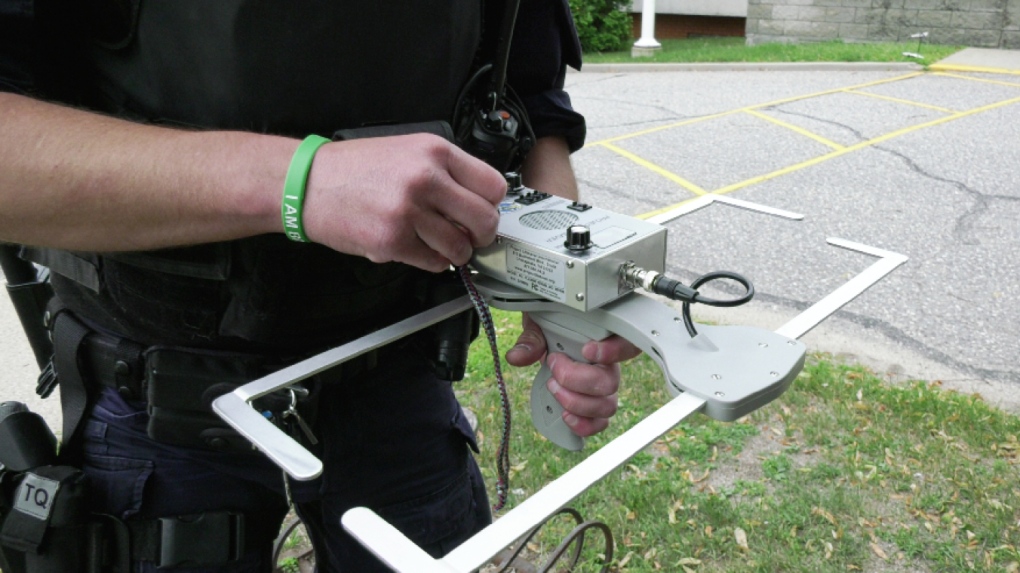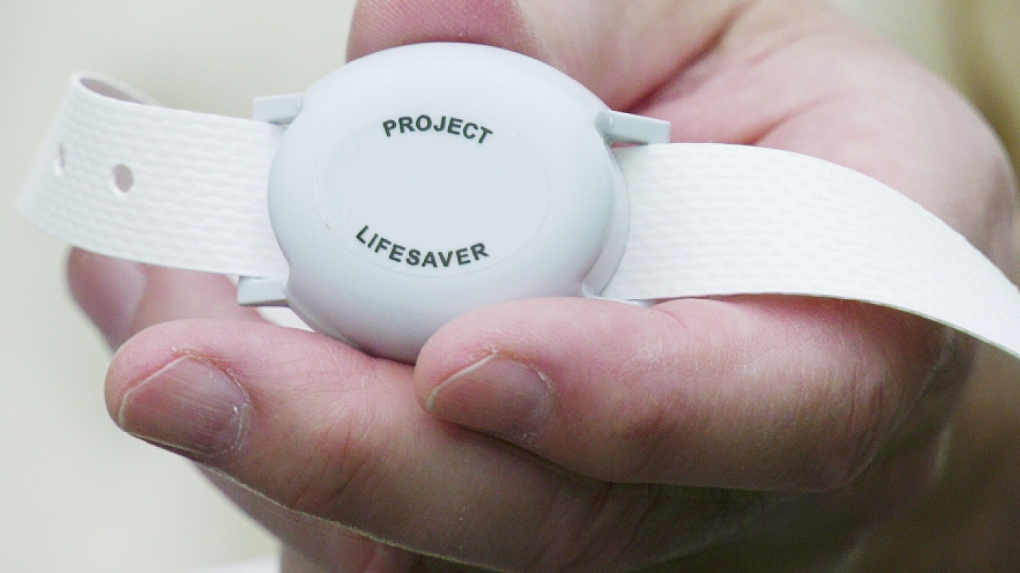Recent rescue in North Bay shows value of Project Lifesaver
After a recent incident, North Bay police and North Bay Air Search and Rescue (BAYSAR) are emphasizing the importance of Project Lifesaver.
A weekend search-and-rescue located a missing man with dementia in a wooded area. He went missing after getting upset and leaving home around 8 p.m. June 23.
Thankfully, he was registered in the Project Lifesaver program.
Police were notified when a family member realized he was missing. Within minutes, equipment was deployed and he was located in a heavily wooded area off a bush trail near Birchaven Cove Park, not far from his home.
The man, who had fallen and was unable to get up, was returned safely to his family.
“It’s extremely personally gratifying, not only for our successful searches, but because our program has expanded,” said BAYSAR president Stan French.
Police are encouraging families to enroll their loved ones who live with Alzheimer's, autism or other cognitive conditions or disorders into the program.
“A lot of these situations prior to having this equipment could maybe go all night or maybe a couple of days and likely would end differently,” said North Bay Police Const. Merv Shantz.
French said the most recent rescue is just one of many success stories thanks to the program.
“Searches are shortened by, on average, 95 per cent,” he said.
 After a recent incident, North Bay police and North Bay Air Search and Rescue (BAYSAR) are emphasizing the importance of Project Lifesaver. (Eric Taschner/CTV News)
After a recent incident, North Bay police and North Bay Air Search and Rescue (BAYSAR) are emphasizing the importance of Project Lifesaver. (Eric Taschner/CTV News)
 Project Lifesaver transmitter can help police and search and rescue crews find people with cognitive conditions quickly. (Eric Taschner/CTV News)Clients are fitted with a wrist or ankle transmitter, which provides a unique radio pulse once per second, 24 hours a day.
Project Lifesaver transmitter can help police and search and rescue crews find people with cognitive conditions quickly. (Eric Taschner/CTV News)Clients are fitted with a wrist or ankle transmitter, which provides a unique radio pulse once per second, 24 hours a day.
The frequency is recorded in the police database along with other client information. If the client goes missing, the family can call 911, where operators will send the frequency of the transmitter to searchers who can quickly begin the search.
Searchers use a receiver to set the frequency and the search begins.
“We’re one of the few agencies in the province that has air support,” French added.
“So if a Project Lifesaver client goes missing and it's particularly difficult to search, we can launch an aircraft with a team and help find them.”
'This project works'
Several police officers in each platoon are trained to use the search-and-rescue equipment. On average, it takes rescuers about 30 minutes to find a missing person enrolled in the program.
French said 40 clients from Mattawa to Verner are currently enrolled.
“The statistics for survival for a senior with dementia is only 50 per cent once you pass the first 24 hours,” French said.
“This project works.”
BAYSAR was the 23rd agency in Ontario to use the program, following in the footsteps of Sudbury and Sault Ste. Marie.
The team of volunteers also helped York Regional Police train for airborne search and rescue.
“They just proved their ability to do it by finding a client who (was) on a bus and ended up being found in Toronto,” French said.
- Download our app to get local alerts on your device
- Get the latest local updates right to your inbox
Those participating in Project Lifesaver pay $100 for an annual lease fee for the transmitter and a $100 deposit for the equipment. When it is no longer needed, the deposit will be returned. There is also a $20 monthly fee.
To register an individual or for further information, contact the North Bay Police Service at 705-472-1234, or a BAYSAR volunteer at 705-477-3713.
More details on Project Lifesaver can be found here.
CTVNews.ca Top Stories

'It's not realistic': Former PM Chretien thinks Trump will back off trade war
Former prime minister Jean Chretien says U.S. president-elect Donald Trump is likely to walk back his threat of punishing tariffs and the resulting trade war with Canada, because the Americans are too reliant on a number of Canadian exports, namely in the energy sector.
This Canadian teen lost her hands and feet to an infection. She's on a mission to share her story
A Canadian teen is reaching audiences around the world with powerful social media videos showing life without hands and feet – the price she paid after developing sepsis.
'I didn't want to go cold turkey:' Environment Canada's David Phillips on why he keeps working after retirement
When Environment Canada Senior Climatologist David Phillips retired this past September, he wasn’t quite ready to call it a career.
‘People are excited’: Portion of Rideau Canal Skateway opens for the first time this year
A section of the Rideau Canal Skateway has opened for the first time this winter.
Black boxes from South Korea plane crash failed to record final 4 minutes, officials say
The black boxes of a Boeing jetliner that crashed in South Korea last month stopped recording about four minutes before the accident, South Korean officials said Saturday, possibly complicating investigations into the cause of the disaster that killed 179 people.
Brothers defrauded by B.C. Realtor win $86K in compensation
Two brothers who gave a combined $86,000 to a Realtor who later pleaded guilty to fraud and declared bankruptcy have won compensation in B.C. Supreme Court.
'I'll never call him dad again:' Gisele Pelicot’s daughter says she suspects her father also drugged her for sexual abuse
Caroline Darian, the daughter of Gisele Pelicot who sustained years of horrific sexual abuse by her then-husband and other men, has described how she’s certain her father drugged her and strongly suspects she was raped too.
With their Los Angeles-area homes still smoldering, families return to search the ruins for memories
Since the flames erupted in and around Los Angeles, scores of residents have returned to their still smoldering neighborhoods even as the threat of new fires persisted and the nation's second-largest city remained unsettled.
Vancouver strip club's X account suspended over cheeky marquee message
The marquee at The Penthouse strip club in downtown Vancouver is known for its edgy comments on politics and pop culture.

































